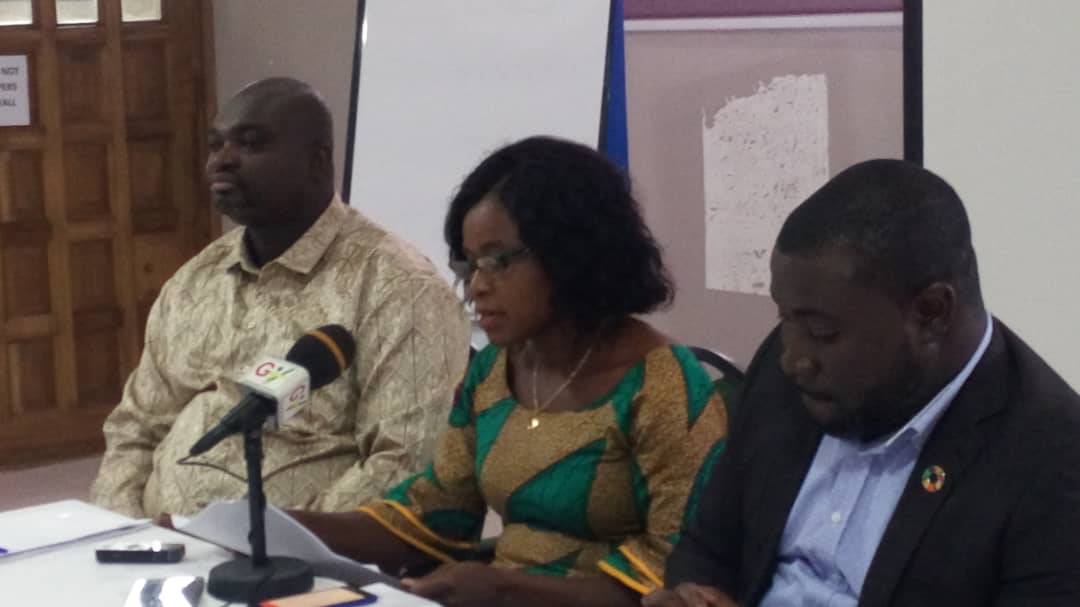
Climate change and Green economy experts have warned that if Ghana does not take effective measures to adapt and mitigate climate change, the menace will be a fundamental threat to people’s livelihoods, places, and species.
Already, Climate change is beginning to transform life on Earth. An example can be made of the current rain patterns, the weather, and scarcity of natural resources, among others. Without action, the impacts of climate change threaten to disastrously damage our world, according to experts.
In the three regions of the North precisely, reports suggest that drought has become severe and flooding due to erratic rainfalls in Ghana. The development has become a serious worry to the nation. People along the Volta banks are constantly displaced as well. Indiscriminate human activities have largely contributed to climate change, leading to a rise in sea level, which pollutes other water bodies and destroying aquatic life. We can talk of the Korle lagoon which has become extremely polluted, full of human waste and rubbish, destroying aquatic life. This has reduced the economic activity of most inhabitants within these areas who primarily fish for a living.
As a collective effort to reduce the impact of climate change, the United Nations Development programme has organized a sensitization workshop for some selected media practitioners in parts of the country to equip them understand the dynamics of climate change and advocate for the implementation of Green Economy actions. The workshop targeted journalists from electronic, print and freelancers who influence editorial content on climate change and green economy initiatives in various institutions to hold state actors accountable and push them to ensure that policies gearing toward green economy and reduction of climate change are enforced.
Speaking to journalists at the training, Project coordinator at UNDP, Kinsley Bekoe indicated that climate change is a global treat. “If you look at the development pathways of many countries, in the early 1990s a lot of emphasis was on production, manufacturing, and all that. After a while we realized that, the actions we were taking were creating problems for the environment, most importantly the increase in carbon dioxide emissions from the different economic activities that we undertake. So many global leaders were concerned about this process and deciding to have a meeting to find solutions to it,” he said.
Experts are worried about the impact of climate change and how it is beginning to manifest on the entire globe and mostly on developing countries like Ghana because of its vulnerability. They are advocating for governments and citizens to ensure resilience in development and adapt measures to minimize the impact of climate change. Countries are also encouraged to implement Green Economy in all sectors to improve human well being and equity, reduce environmental risks, and ecological scarcities.
According to the Deputy Director and Head, Climate Change and Sustainable Development Unit at the Ministry of environment, science, technology, and innovation, Peter Dery, Green Economy and climate change have to be immersed into mainstream economy planning process to ensure that the country meets the Sustainable Development Goals agenda.
He said citizens must avoid environmental destruction. He lamented that even though leaders have the political will, they hardly implement what is on paper.
“We have signed on to a number of international conventions, that is a demonstration of political will, we have developed a number of policies, that is a demonstration of political will, but of course we need to go beyond that, we need to now ensure that things are practically on the ground, we need to do more than to say we don’t have political will,” he emphasized.
Meanwhile, the government has revealed that Ghana is continuously experiencing extensive environmental degradation that could derail the quest to attain the status of an upper middle income country.
A Communications Analyst at UNDP, Praise Nutakor who also facilitated a section at the workshop to deepen the understanding of over 20 media practitioners from the southern sector of the country, demonstrated how journalists can pitch compelling stories related to climate change.
Source: Ghana/Starrfmonline.com/103.5FM/Josephine Asabea Akonor





